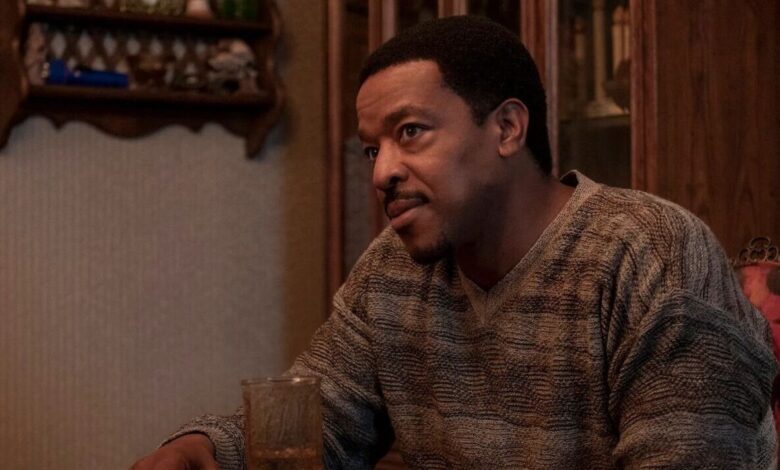Charles Flenory: Unpacking a Name Linked to Music, Family, and Controversy

The name Charles Flenory resonates in different circles, pointing to distinct individuals whose lives have captured public attention for varied reasons. From the soulful echoes of Sacred Steel guitar to the complex family dynamics portrayed in a popular crime drama, “Charles Flenory” carries more than one story. This article delves into the lives of the prominent figures named Charles Flenory, aiming to provide clarity and a comprehensive look at their impact and narratives. We will explore their worlds using simple language and an active voice, making the information accessible and engaging.
Charles Flenory: The Patriarch in the Shadow of BMF
One Charles Flenory has gained significant public recognition through the lens of popular culture, specifically the Starz television series “BMF” (Black Mafia Family). This series chronicles the rise of a notorious drug trafficking and money laundering organization in Detroit during the 1980s and 90s, founded by brothers Demetrius “Big Meech” Flenory and Terry “Southwest T” Flenory. This narrative depicts Charles Flenory as their father, a hardworking man struggling to provide for his family while grappling with his son’s choices and the ensuing turmoil.
Portrayal and Reality:
Actor Russell Hornsby portrays Charles Flenory in the “BMF” series. His character embodies the struggles of a father trying to maintain his moral compass and protect his family amidst the allure of fast money and the dangers of the streets. The show often highlights:
- Family Values: Charles is often shown emphasizing hard work, religion, and legitimate means of earning a living.
- Marital Dynamics: His relationship with his wife, Lucille Flenory (portrayed by Michole Briana White), is a central theme, showcasing the strains on their marriage by their sons’ activities and differing approaches to the crisis.
- Generational Conflict: The series explores the clash between Charles’ traditional values and his sons’ ambitions in the illicit drug trade.
While the television series takes creative liberties, public records, and news reports provide some insight into the real Charles Flenory, the father. Born around 1948, his life was inevitably shaped by the actions and consequences of his sons’ empire. Reports from the time of BMF’s takedown indicate that the real Charles Flenory did face legal repercussions.
Legal Troubles and Role Clarification:
Addressing some conflicting information regarding Charles Flenory’s role within the BMF organization is crucial. Some online sources suggest Charles and Lucille Flenory were principal leaders of BMF, facing severe sentences like life in prison. However, more widely corroborated reports and investigative journalism paint a different picture:
- Primary Leadership: Demetrius “Big Meech” Flenory and Terry “Southwest T” Flenory are consistently identified as the founders and primary leaders of the Black Mafia Family.
- Charles Flenory’s Involvement: According to a 2008 article by Creative Loafing Atlanta, Charles Flenory, then 60, received an 18-month prison sentence. This sentence was reportedly for his role in using drug proceeds supplied by his sons to pay for renovations on Terry Flenory’s house. This indicates involvement in money laundering, a supporting role rather than a leadership one in the drug empire itself.
This distinction is important. The father, Charles Flenory, was certainly impacted by and involved to some extent in the periphery of his sons’ criminal enterprise. Still, the primary architects and leaders were Demetrius and Terry.
Key Aspects of Charles Flenory (BMF Patriarch):
- Father Figure: Central to the BMF narrative is the father of its founders.
- Moral Conflict: Often depicted (in the series) as being at odds with his sons’ criminal lifestyles.
- Real-Life Consequences: Faced legal charges and sentencing for activities related to the BMF investigation, specifically concerning financial dealings.
- Subject of Popular Culture: His life and struggles are a significant storyline in the “BMF” television drama, bringing his name to a wider audience.
Understanding this, Charles Flenory requires separating the dramatized television portrayal from the factual, albeit complex, reality of a father whose sons became notorious figures in American crime history. His story is a cautionary tale about family, choices, and the far-reaching consequences of criminal enterprises.
Charles Flenory: A Soulful Pioneer of Sacred Steel Guitar
Distinct from the BMF narrative, another Charles Flenory made his mark in a completely different realm: music. Charles Flenory was a talented and influential musician known for contributing to the Sacred Steel tradition.
Early Life and Musical Beginnings:
Charles Flenory, the musician, was born in Cleveland, Ohio, on March 18, 1948. His father served as an elder in the Church of the Living God, Jewell Dominion. The family later moved to the Keith Dominion in the early 1950s. This religious upbringing and environment were foundational to his musical journey.
He developed an interest in music at a young age. Around the age of sixteen, Charles Flenory started playing the standard guitar. A few years later, he embraced the steel guitar, which would define his musical legacy, and began playing it during worship services.
Contributions to Sacred Steel:
Sacred Steel is a vibrant African American gospel music tradition featuring the steel guitar. Charles Flenory became one of the early adopters and innovators of the pedal steel guitar within the House of God churches. His style was influenced by various sources, including the Jewell Dominion tradition and even country pedal-steel guitarists he heard on the radio. Nashville studio musician Lloyd Green was a notable inspiration.
Key Highlights of Charles Flenory’s Musical Career:
- Instrumentalist: Mastered both the standard and steel guitars, excelling in the Sacred Steel genre.
- Association: A prominent Detroit House of God musician, Keith Dominion.
- Pioneer: Recognized as one of the earliest musicians to introduce and popularize the pedal steel guitar in House of God services.
- Entrepreneur: In 1963, he established the Gospel Sounds Record Corporation, showcasing his dedication to promoting and preserving the music he loved. This venture involved him bartering carpentry work for lessons from former Motown engineers, highlighting his resourcefulness.
- Archived Legacy: The Arhoolie Foundation has preserved an insightful interview conducted by Robert Stone on February 13, 1998, in Memphis, Tennessee. This interview provides invaluable first-hand accounts of his life, musical development, and the Sacred Steel tradition.
Charles Flenory, the musician, passed away on July 8, 2017. His work continues to be celebrated, and he is remembered as a significant figure who helped shape the sound and spirit of Sacred Steel music. His dedication to faith and innovative approach to the steel guitar left an indelible mark on gospel music.
Comparing the Two Prominent Figures:
To ensure clarity, let’s summarize the key differences between the two notable individuals named Charles Flenory:
- Charles Flenory (BMF Patriarch):
- Known primarily as the father of BMF founders Demetrius and Terry Flenory.
- Life and struggles depicted in the Starz series “BMF.”
- Had real-life legal issues connected to BMF activities but was not a primary leader.
- Born circa 1948. Still living as of the latest available information about the BMF series and related discussions.
- Charles Flenory (Sacred Steel Musician):
- Renowned guitarist and pioneer of the pedal steel guitar in the Sacred Steel tradition.
- Associated with the Detroit House of God, Keith Dominion.
- Founder of Gospel Sounds Record Corporation.
- Born March 18, 1948, in Cleveland, Ohio.
- Passed away on July 8, 2017.
The Importance of Distinguishing Identities
The existence of multiple public figures sharing the same name can sometimes lead to confusion. In the case of “Charles Flenory,” the context is paramount. One is tied to a highly publicized crime family and its dramatic retelling, while the other is celebrated for his spiritual and musical contributions.
Public records available through sources like Ancestry.com also list other individuals named Charles Flenory, with various birth dates, locations, and life events. These include:
- Charles Louisa Flenory
- Charles Edward Flenory (some records for the musician might use this full name)
- Charles Flenory Jr.
- Charles Lynn Flenory Jr.
- Charles Lew Flenory
- Charles Lewis Flenory
Additionally, legal documents show other individuals, such as Charles Flenory, involved in a housing rights case in Pennsylvania with Tallulah Flenory, and Charles “Pope” Flenory, a retired police officer who owned a club involved in a separate legal matter. These instances further highlight that “Charles Flenory” is not an exceptionally uncommon name.
However, the two individuals detailed extensively in this article—the BMF patriarch and the Sacred Steel musician—have garnered the most significant public attention and about whom substantial public information is available.
Conclusion: The Legacies of Charles Flenory
The name Charles Flenory carries distinct legacies. One narrative is deeply intertwined with the rise and fall of the Black Mafia Family, exploring themes of family loyalty, difficult choices, and the consequences of crime. This Charles Flenory is largely known through the portrayal of a father figure in a popular television drama, with his real-life story reflecting a more peripheral, yet still legally impactful, involvement in his sons’ notorious enterprise.
The other Charles Flenory carved a different path, leaving a legacy of soulful music and spiritual expression. As a pioneer of the Sacred Steel guitar, he enriched a unique American gospel tradition, inspiring fellow musicians and worshippers alike. His contributions to music ensure his memory endures within the gospel community and among enthusiasts of the genre.
When encountering the name Charles Flenory, it is essential to consider the context to understand which individual is referenced. Each man’s story, while vastly different, offers a glimpse into diverse aspects of American life, culture, and the varied ways individuals can leave their mark. By presenting these narratives clearly, we hope to provide an informative and engaging resource for anyone seeking to learn more about Charles Flenory.





